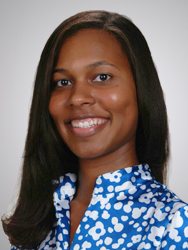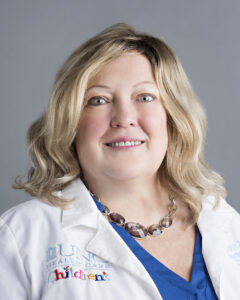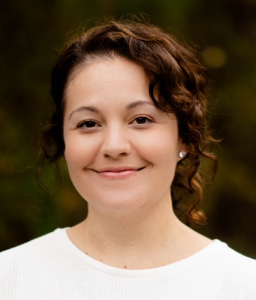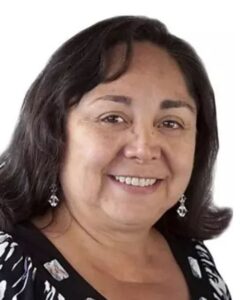Health Care Transition Clinic

Adolescence is an exciting time in a person’s life. You’re growing and developing physically, emotionally, and socially. Every aspect of your life is affected. That includes your relationship with your health care. At some point, young people make the move from pediatric to adult health care providers. Unfortunately, this move can be confusing at times, particularly for people with chronic neurological and neurodevelopmental conditions.
What is health care transition?Health care transition is the planned movement of adolescents and young adults with chronic physical and medical conditions from a child-centered to an adult-focused health care system. Health care transition is a process, not a one-time event. The goals of this transition are to get a patient and their family ready to move from pediatric to adult care, to empower them to advocate for their health, to help them understand how to use adult-focused health services, and to ensure that the entire process of moving from one provider to another goes as smoothly as possible for everyone involved.
By age 14, your health care providers should start talking to you about the transition to adulthood and health care transition
By age 18+, your health care providers should start talking about transferring care to an adult provider.
At the UNC Neurology Health Care Transition Clinic, we want to help our patients gain the knowledge, skills, and support that they’ll need when it is time to move from a pediatric to adult neurology clinic.
What can I expect when I come to UNC Neurology Health Care Transition Clinic?
During each visit, we’ll talk with you and your family about how:
- a young patient’s neurological condition can affect their lives throughout adulthood;
- young people manage their medications on their own;
- to communicate with adult-focused healthcare providers;
- services and community-based supports may help them live as independently as possible.
We’ll also talk about other things that are very important to young adults like school (college, inclusive post-high school options, and other programs,) jobs, housing, driving, reproductive health, mental health, and healthy relationships. For our patients with intellectual and developmental disabilities, we’ll also discuss supported decision-making, guardianship, and other alternatives for support.
When you’re visiting the clinic, you may meet with a few of our team members including our physicians, nurse practitioner, or social worker.
For your clinic visit, make sure to bring your updated list of medications, allergies, and any outside medical records (including EEGs, MRIs, lab work, neuropsychological testing, IEPs, and other reports) that may be helpful. Think about what your goals are for yourself during adulthood. Do you want to go to college? What do you want to do for work? Will you need someone to help you with your day to day activities? All of this information will help us make a plan to connect you with the support that you will need to help you reach your goals.
|
|
Diana Cejas, MD, MPHDr. Cejas graduated from Howard University College of Medicine in 2010. After completing her training in general pediatrics at the Tulane-Oschner Pediatric Residency Program, she completed her child neurology training at the University of Chicago. She also holds a Masters of Public Health in Maternal and Child Health from George Washington University. She is board certified in both General Pediatrics and Neurology with Special Qualification in Child Neurology. During her training, Dr. Cejas developed a special interest in health care transition, particularly for youth with complex neurological and neurodevelopmental conditions. She has partnered with nationally recognized leaders in the field to conduct research on health care transition and to improve the quality of care for these youth. Currently, she serves as an attending physician at UNC, as faculty of the Carolina Institute for Developmental Disabilities, and as the director of the UNC Health Care Transition Clinic. |
|
|
Carolyn Zook Lewis, RN, MSN, CPNPCarolyn Zook Lewis is a pediatric nurse practitioner in the Division of Child Neurology. Though she sees a broad spectrum of patients with complex neurological conditions, she has a specific interest in health care transition. |
|
|
Alyssa Draffin, LCSWAlyssa Draffin is a licensed clinical social worker specializing in care management to pediatric neurology patients. She has been a medical social worker for nearly a decade and holds certifications in trauma, infectious disease and clinical care management. In the clinic, Alyssa works to address barriers to care by providing resource coordination, psycho-education as well as crisis intervention to individuals experiencing mental health emergencies. In previous roles, Alyssa has facilitated group and individual psychotherapy as well as harm reduction techniques for people living with chronic illness. |
|
|
Maria E. Diaz-Gonzalez de Ferris, MD, MPH, PhDDr. Ferris is the Director of the STARx (Self-management and Transition to Adulthood with Rx=Treatment) Program. Her research focuses on healthcare transitions for children with medical complexity as they transition from childhood to adulthood. Her internationally known work evaluates children’s readiness for increasing autonomy in their healthcare and then creates systems to address those gaps and assure health through adolescence and young adulthood. The UNC STARx Program > |




